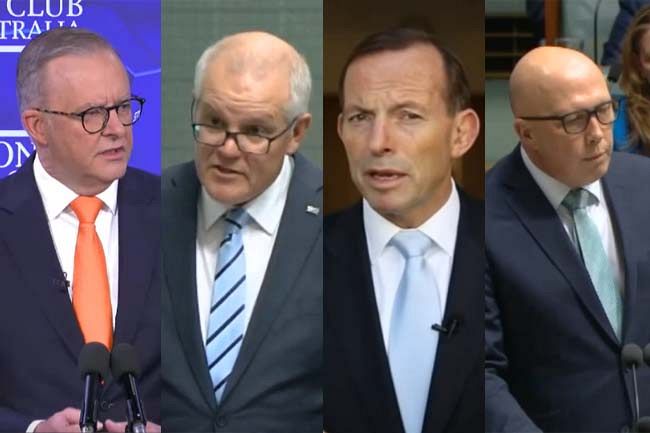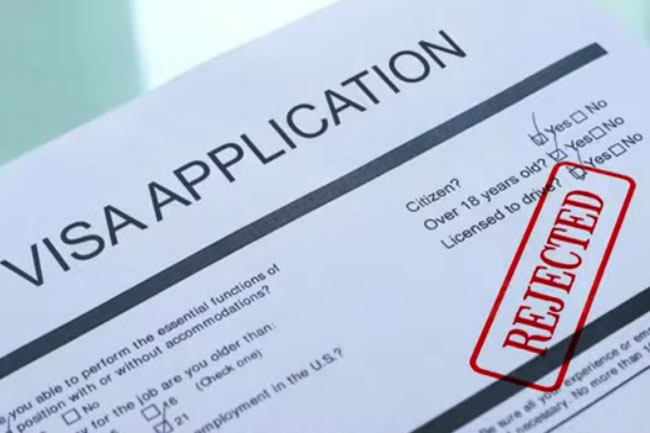With all the migration policies and visa announcements made across both major parties, neither has considered the long-term implications for net migration, writes Dr Abul Rizvi.
NATURAL INCREASE (births minus deaths) and net migration are the two determinants of Australia’s future population size and structure with net migration increasingly becoming the dominant contributor (as is the case across the developed world).
Despite the critical importance of net migration, Australian governments of both persuasions have steadfastly refused to have a policy and management framework for net migration.
When it became obvious net migration was blowing out early in 2023, Treasurer Jim Chalmers said:
“That isn't a government policy or a government target. It's not a floor or ceiling; it's not something the Government determines.”
When asked if the Government’s updated net migration forecasts of 375,000 for 2023-24 and 235,000 for 2024-25 were a target, Home Affairs Minister Clare O’Neil insisted these were only “estimates”. The Government was again seeking to disown any responsibility for managing net migration outcomes.
Australian governments have historically confined themselves to managing the number of permanent visas issued. If a minister wants to increase permanent visas issued in a particular category, this has to fit within the overall permanent migration target or the minister must convince Cabinet to change the target.
But it doesn’t work that way for net migration which measures the number of long-term arrivals minus long-term departures, irrespective of visa category (temporary or permanent) or citizenship. Indeed, net migration includes the long-term movement of Australian and NZ citizens.
We have a long history of ministers and prime ministers announcing new visa initiatives, especially when they are travelling overseas. The Abbott Government announced new Work and Holiday Visa agreements with several countries, including China, when the Coalition didn’t view China as the enemy. All of these agreements were made without any consideration of the long-term implications for net migration.
Former Agriculture Minister David Littleproud announced a new Agriculture Visa for South East Asian nations, which would have been a recipe for a boom in unmeritorious asylum applications and worker exploitation. Once again, net migration implications were not considered.
While on a trip to the UK, former Prime Minister Scott Morrison announced the Working Holiday Visa for UK citizens would be extended from one year to an automatic three years and the maximum age increased to 35. Did he think of the net migration implications? Of course not.
Former Immigration Minister Alex Hawke announced overseas students would be given unrestricted work rights. He not only didn’t think about the massive net migration implications but also ignored the impact on the reputation of Australia’s international education industry.
When international borders re-opened, the Coalition Government, urged on by then Trade Minister Dan Tehan, announced fee-free student and working holiday maker visas without any regard for what that would mean for net migration or the incentive for students who were more interested in work rights than study.
The Coalition Government kept the special COVID visa open and the Albanese Government took too long to close it. Once again, no regard for net migration implications.
The scene was set for a boom in net migration. But the Albanese Government didn’t help things.
When he travelled to India, Prime Minister Albanese announced a new MATES visa for young Indian graduates that should start later this year or next year. Once again, no consideration for the net migration implications.
Foreign Minister Penny Wong announced the new permanent Pacific Engagement Visa without any thought to the net migration implications. Indeed, for some bizarre reason, this visa isn’t even counted in the permanent migration program target. That type of ill-discipline can only lead to problems.
Under pressure from business lobby groups and Opposition Leader Peter Dutton, the Government increased the migration program to 195,000 in 2022-23 and the humanitarian program to 20,000 in 2023-24 but without a word on how that would impact net migration.
Minister O’Neil announced a direct pathway for NZ citizens to Australian citizenship, bypassing the permanent residence stage but without any consideration of the impact on net migration.
Urged on by international education lobbyists, Education Minister Jason Clare introduced more generous post-study work rights but with no thought to what that would mean for net migration. That position is now being reversed.
By mid-2023, the Government recognised it couldn’t let net migration continue to blow out and started taking action to reign it in.
Opposition spokesperson on immigration, Dan Tehan, using some made-up forecasts of net migration, is arguing for a faster reduction in net migration. But he wouldn’t explain what his target would be, how he would get there or the policy framework he would use. He seemed only interested in politics — which will inevitably be ugly.
Reigning in net migration takes time. There are significant legal and policy issues that need to be dealt with. Many Australian businesses rely on various visa categories, such as regional Australia on the working holiday maker program.
And then there are lags in the implementation of associated regulations and system changes as well as backlogs of visa applicants who have a legal right to be considered mostly against existing regulations. That is partly why it is taking so long for the Government to reduce net migration.
Net migration hit a new record for the 12 months to September 2023 of 548,800, surpassing the previous record of 528,000 for the 12 months to June 2023. And while net migration seems to now be slowly trending down, a large surge in long-term permanent movements in January 2024 (lots of expatriate Australian citizens returning) will mean there is little chance net migration in 2023-24 will be reduced to the forecast of 375,000, let alone to 235,000 in 2024-25.
The Government needs to tighten further, but sensibly do that with an eye to the long term. It must adopt a long-term target for net migration and publicly announce and implement a policy framework for managing net migration that all ministers must adhere to. This should be similar to how ministers can no longer announce new spending initiatives without finding offsetting savings.
That would be both good policy and good politics.
Dr Abul Rizvi is an Independent Australia columnist and a former Deputy Secretary of the Department of Immigration. You can follow Abul on Twitter @RizviAbul.
Related Articles
- Dutton's fearmongering over asylum seeker arrivals is overtly hypocritical
- Sky News debate on asylum seeker policy: Indisputable facts
- Working holidaymakers continue strong contribution to net migration
- Record temporary entrants set new challenges for net migration
- Labor Government's 2024 challenge to restore visa integrity
 This work is licensed under a Creative Commons Attribution-NonCommercial-NoDerivs 3.0 Australia License
This work is licensed under a Creative Commons Attribution-NonCommercial-NoDerivs 3.0 Australia License
Support independent journalism Subscribe to IA.















